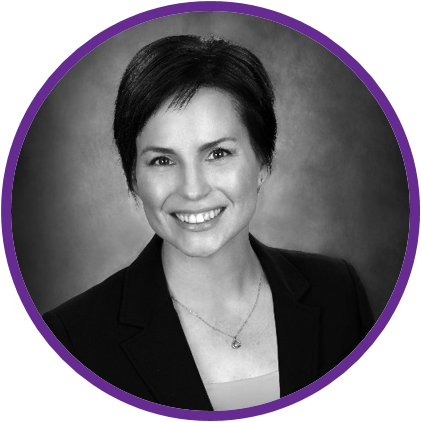
By David Sheehan and Rebecca Vasquez, Esq.
For an insurance company, the key objective of a market conduct examination (MCE) is to avoid it. As regulators pay more attention to problem areas, behaving well in the marketplace in the first place mitigates the chances of being examined. The No. 1 defense against an unscheduled market conduct examination is a documented and well managed compliance program, and companies that follow a few best practices find they can stay under the regulatory radar, and when they are selected for examination, they can be fully prepared to make it go smoothly.
1. Know the handbook.
The NAIC’s Market Regulation Handbook Examination Standards Summary (available free of charge as a downloadable PDF) is a high-level compilation of the market conduct standards found in the more complete Market Regulation Handbook, available from the NAIC, details each function within an organization that a market conduct examiner would review during the exam process.
- Make sure your policies and procedures align with each standard in the summary. If they do, you probably have a robust compliance framework already, and you’d be prepared for a regulatory examination.
- Monitor and measure these standards. For example, one standard is complaint handling. During an MCE, an examiner will review a company’s complaint records to ensure it follows these standards. This includes complaints being recorded properly and the company taking adequate steps to resolve them appropriately.
2. Understand common exam triggers.
Regulators pay close attention to these areas. Manage them successfully to lessen the frequency of being examined.
- Complaints: The most frequent trigger for a market conduct exam.
- Claim denials and slow payments
- Policy cancellations and non-renewals
- Drastic changes in premiums
- Regulatory action or activity in other states: State departments of insurance (DOI) compile data in their jurisdictions and share it with other DOIs. A red flag in one state can trigger investigations in others.
- Market Conduct Annual Statement (MCAS) outliers: MCAS results can be a strong indicator of a possible market conduct examination. Regulators look for outliers in the results, like the number of complaints, claim denials, and other metrics.
- New laws and regulations: New laws and regulations are being adopted around evolving functions, such as cybersecurity and health care, and regulators focus on how insurers keep on top of the changes.
- Market share and premium growth: Larger organizations may tend to be examined more often than smaller market participants.
3. When it comes time for an exam, be prepared and establish a defined process.
If you are chosen for an exam, show that you have your house in order and conduct yourself positively for the best possible result.
- Appoint an exam coordinator who has thorough knowledge of the company, its organization, and its processes. A well-appointed coordinator can expedite the process and encourage a positive result.
- Prepare for the examiner’s arrival in advance, having read the coordinator handbook, if relevant. Provide a comfortable, welcoming workplace and fully functioning technology to avoid unnecessary delays. Being friendly, accommodating, respectful, and collaborative can only help—especially when negotiating points in the final report.
- Respond to exam criticisms quickly. Acknowledge any deficiencies, own them, and work with the examiner to develop a remediation plan in a timely manner to keep the project on track.
- Build a process to manage workflow and data. Ideally, an organization would use technology to facilitate the exchange of information between examiners and different parts of the company.
4. Utilize technology that is designed for the job.
Many organizations still use ’90s-vintage technology—email, spreadsheets or a secure file share—for market conduct exams, making the process ad hoc, reactive, cumbersome, and unreliable. A system that orchestrates all the moving parts can ensure a vastly better outcome.
- A purpose-built solution that manages tagged and searchable market conduct content specifically, rather than fishing for information in email and shared files manually. This allows for more timely and accurate responses to examiners’ criticisms during the market conduct exam process.
- Created by people experienced in the market conduct exam process and uses structured project templates to replace manual task tracking.
- Accommodation of staff involved by identifying and notifying each one in advance, allowing for preparation of any obligations and tasks well ahead of deadlines, and enabling collaboration among them during the process.
5. More Best Practices
- Create, test, and verify the implementation of policies and procedures for each exam-triggering area. For example, analyze complaint data to identify trends and implement appropriate corrective action. Implement a solid complaint tracking system that allows for effective management of complaints, and any uptick in complaints should be investigated immediately.
- Go to the regulators before they go after you by self-reporting compliance issues before they rise to a regulator’s attention. Most DOIs look favorably on companies that do this.
- Review recent examination results of other companies, which are published on some state department of insurance websites. These can provide insight into different states’ market conduct priorities. For example, one state may be more focused on privacy issues while another looks closely at property & casualty claims.
RegEd is ready to assist insurance companies manage the process of a market conduct exam, including task management, document management, communication with the examiners, documentation, audit trails, reporting, and more, supported by efficient and enabling technology and people with deep experience in the process.
Learn more about our Market Conduct Exam Management solution.
About the Authors

Rebecca Vasquez
Rebecca Vasquez is a Senior Regulatory Analyst/Publisher at RegEd.

David Sheehan
David Sheehan is a Senior Compliance Analyst at RegEd.